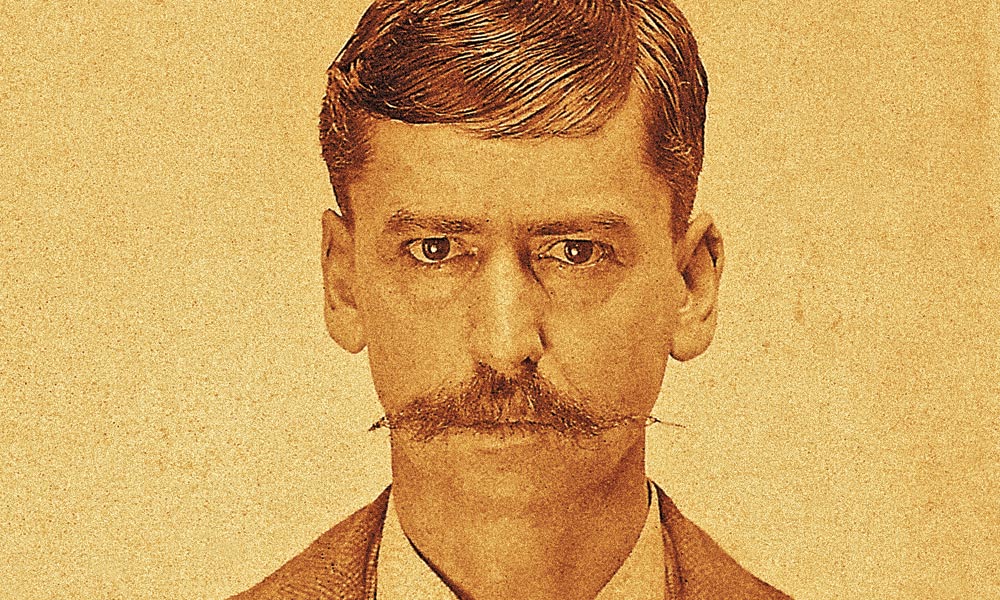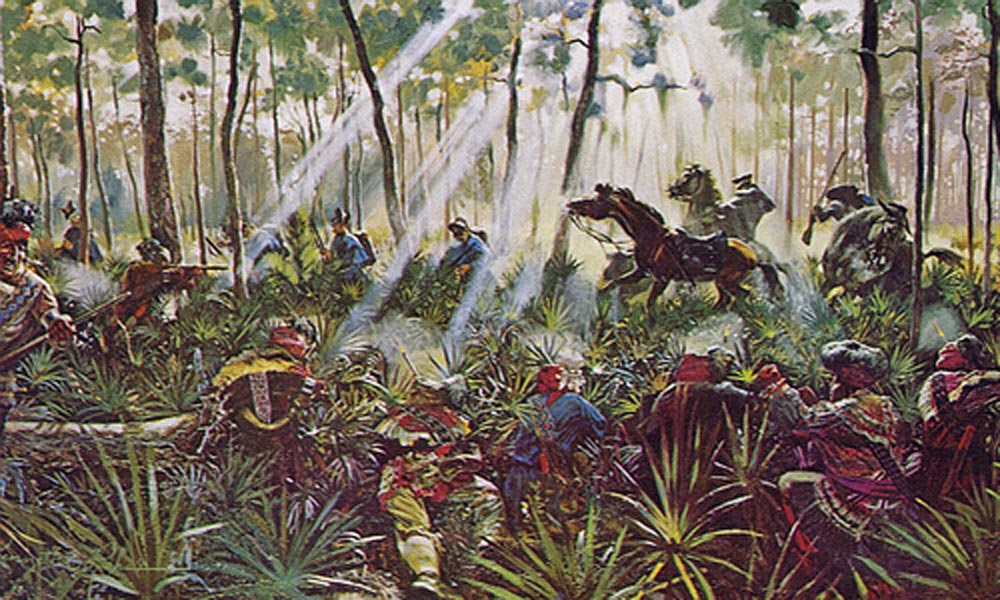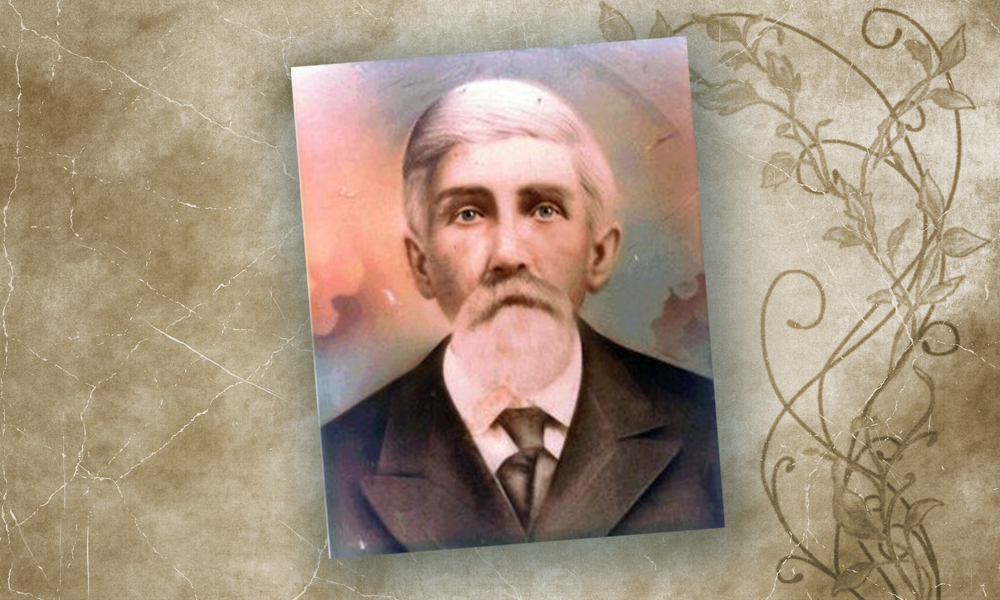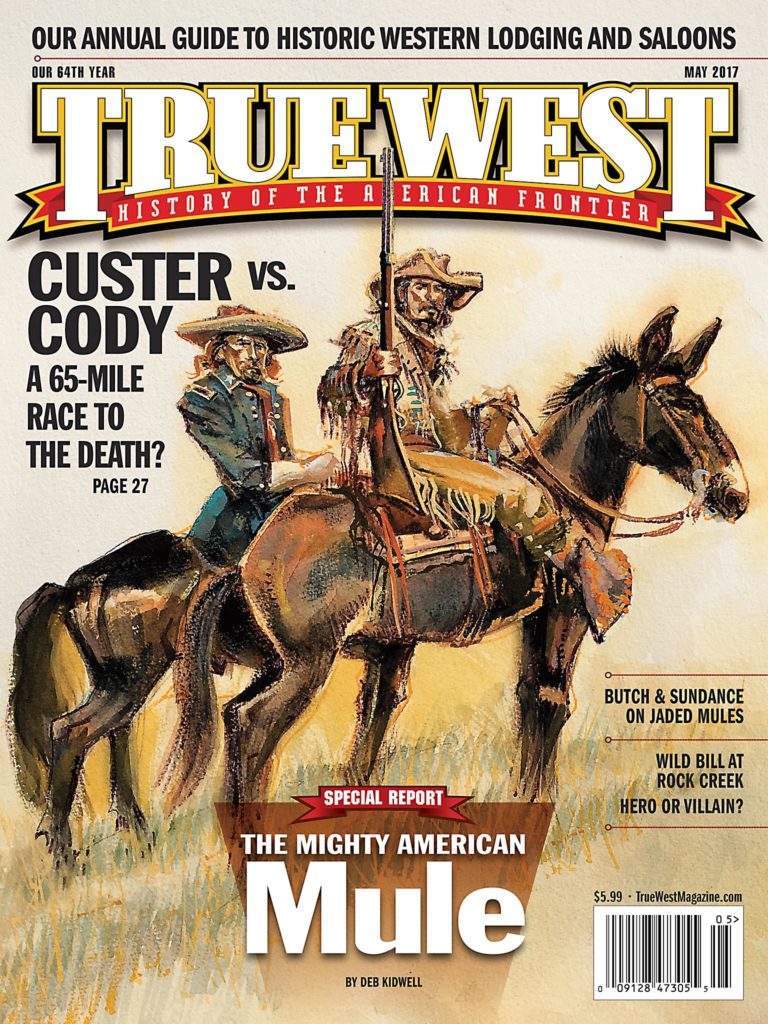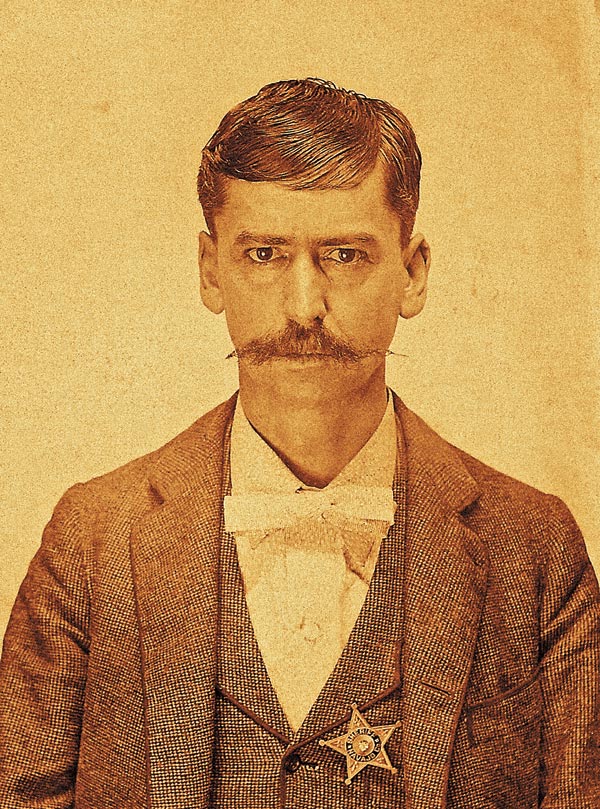
Francis Joseph Wattron, born February 5, 1861, in Hermann, Missouri, was a small boy when the town’s alarm bells signaled an accident at Stone Hill Winery. His father, a vintner from France, had fallen into a vat of wine and drowned. Then his Swiss-born mother remarried and died in childbirth, leaving the boy orphaned.
His only relative in America was his namesake, Father Francis Joseph Wattron, a Jesuit priest. For six years, starting when the boy was seven, he lived in dire poverty on the Kansas frontier while his uncle established a mission for the Paola tribes.
In the summer of 1874, Frank, age 13, ran away after an unknown assailant nearly killed his uncle by gunshot. While Frank worked as a ranch hand in Texas and Mexico, cowboys taught him a trade that was more to his liking than plowing. He became an itinerant gambler.
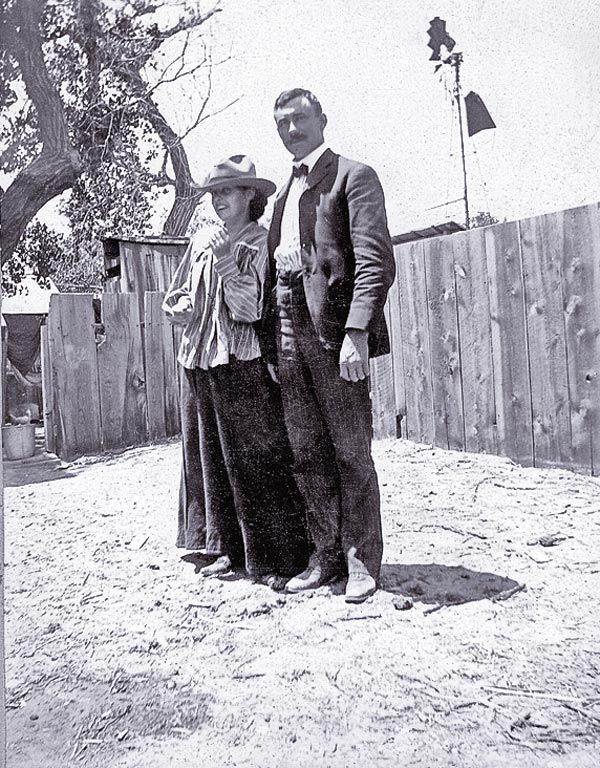
– Courtesy Navajo County Historical Society Museum –
His closest call came in a saloon in Glorieta, New Mexico Territory. A drunken Frank was “shooting off his mouth,” as he admitted, when another player shot him in the groin under the table. Frank walked with an odd swagger all his life, but he fathered six children.
In Arizona Territory, Frank won a half-interest in a combined drugstore and saloon in Holbrook. At age 23, he owned the business, which gave him a ready supply of laudanum, a tincture of opium, for his constant pain.
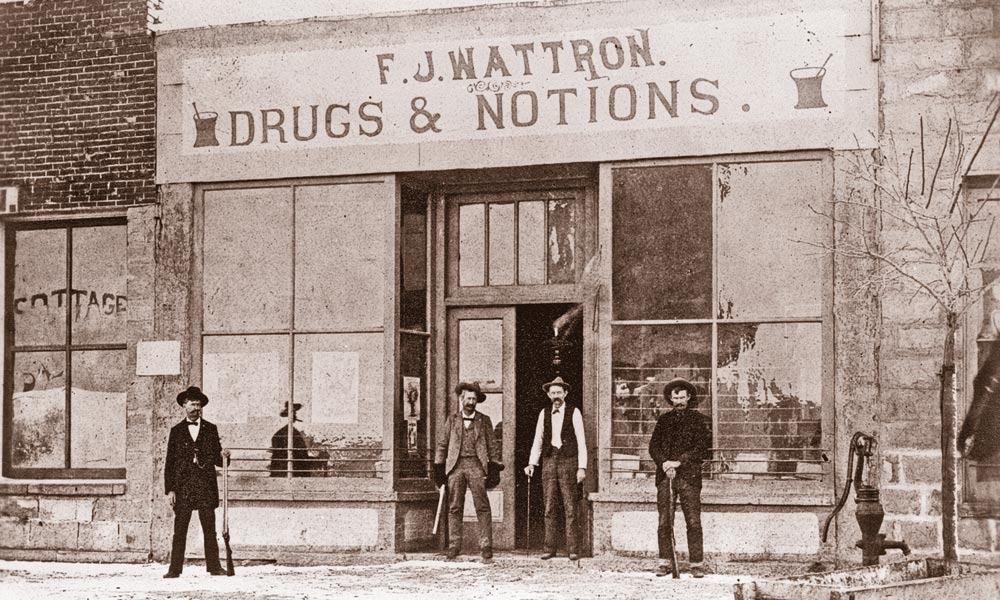
– Courtesy Arizona State Library, Archives and Public Records, History and Archives Division, Phoenix, 97-9458 –
In 1885, the Apache County Board of Supervisors appointed Frank constable of Holbrook, primarily to deal with the unruly Hashknife Outfit cowboys who had come in from Texas. After Frank helped Commodore Perry Owens get elected as sheriff the next year, Owens deputized him. They worked together to rid Apache County of outlaws.
Frank’s life changed for the better in 1886, when he met Estelle Herstein, Holbrook’s new schoolteacher from Tennessee. Their wedding on January 28, 1887, ushered in happy times for Frank in the 1890s. The Elks Lodge member raised funds for an opera house in Winslow and lobbied to preserve the area’s petrified wood from mining. At one time, he held seven positions simultaneously. When Navajo County split from Apache County in 1895, making Holbrook the county seat, Frank became the county’s first elected sheriff, in 1896. Meanwhile, he ran the drugstore during the days and the gaming tables into the early morning hours.
In 1899, Frank sent out an invitation to a hanging, required by law of Arizona Territory sheriffs, which President William McKinley failed to see the humor in. It stated: “Latest improved methods in the art of scientific strangulation will be employed and everything possible will be done to make the proceedings cheerful and the execution a success.”
The people responded by not electing Frank for a second term as sheriff. By December 1900, Estelle and the children had moved to Los Angeles, California. Frank visited, but could not find anyone to purchase his store so he could move too.
Five years later, Frank’s friends found him unconscious on his drugstore cot, an empty bottle of laudanum beside him.
Late in the afternoon of August 2, he told his pals, “I’ve got a one-way ticket punched straight through to hell with no stops.” He died shortly after, at the age of 44.
Stanford graduate Jo Baeza is the author of Arizona: The Making of a State. Her 1964 book, Ranch Wife, published under the name Jo Jeffers, was designated one of the best 100 books about Arizona in 2012.

